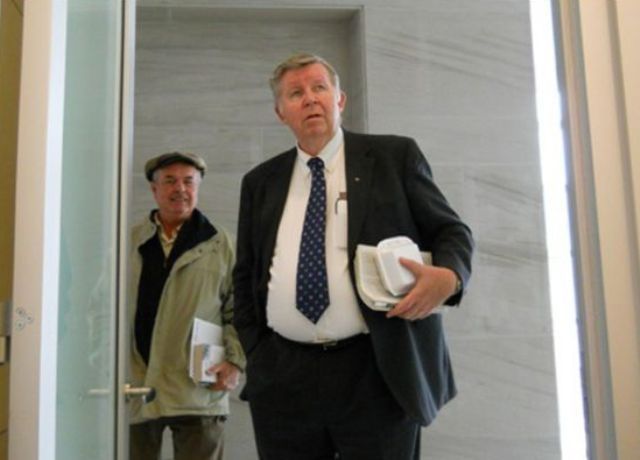Federal judge rejects challenge to Colorado ‘buffer zone’ law for abortion clinics
A federal judge on Tuesday rejected a Denver woman’s challenge to Colorado’s 32-year-old law restricting proselytizing at abortion clinics, with the ultimate goal of the litigation being to ask the U.S. Supreme Court to overrule its precedent on the subject.
In 1993, Colorado legislators enacted a law generally prohibiting people from approaching others, within eight feet, for the purpose of distributing leaflets, displaying signs or otherwise speaking to people near a health care facility’s entrance. The law was challenged at the time as unconstitutional, but state courts upheld the restrictions after hearing about anti-abortion protesters screaming at and confronting patients — even those who were not at the facility to seek an abortion.
The Supreme Court, in its 2000 decision of Hill v. Colorado, similarly upheld the law by a vote of 6-3. The majority concluded the law was “a regulation of the places where some speech may occur,” and was not an inherent restriction on any particular viewpoint.
Twenty-three years later, Wendy Faustin mounted a similar challenge to the buffer zone law, and to an identical ordinance in Denver. She has long engaged in “sidewalk counseling,” bringing pamphlets and signs in opposition to abortion. Faustin’s lawyers wrote that she would “strongly prefer to instead begin her interaction” by approaching people “within a normal conversational distance under eight feet,” which the law prohibits.
At the same time, Faustin acknowledged Hill doomed her cause in the near-term, as only the Supreme Court itself could reconsider its precedent.
“Plaintiff does not dispute that it requires judgment for Defendants at this initial stage,” her attorneys wrote to U.S. District Court Judge S. Kato Crews. If Crews “feels bound to apply Hill, it controls this case, and in that event she respectfully seeks the opportunity to take her case against Hill to the High Court itself.”
In a brief July 29 order, Crews accordingly agreed the outcome was clear.
“Contrary to Plaintiff’s suggestion, it is not a matter of whether the Court feels bound to await a decision from the Supreme Court. In the hierarchy that is the federal court system,” he wrote, “the Court is required to ‘follow the case which directly controls.'”
Faustin noted in her filings that the Supreme Court’s Republican-appointed majority includes at least one person willing to overrule Hill.
In February, the court declined to hear a case out of Illinois involving a highly similar buffer zone law that a federal appeals court upheld on the basis of Hill. However, Justice Clarence Thomas, the only dissenting member in Hill who still sits on the Supreme Court, indicated he would have reviewed the Illinois case to explicitly reconsider the constitutionality of buffer zones.
“To be sure, this Court has not uttered the phrase ‘we overrule Hill.‘ For that reason, some lower courts have felt compelled to uphold Hill-like buffer zones around abortion clinics,” he wrote. “I would have taken this opportunity to explicitly overrule Hill.”
The case is Faustin v. Polis et al.











